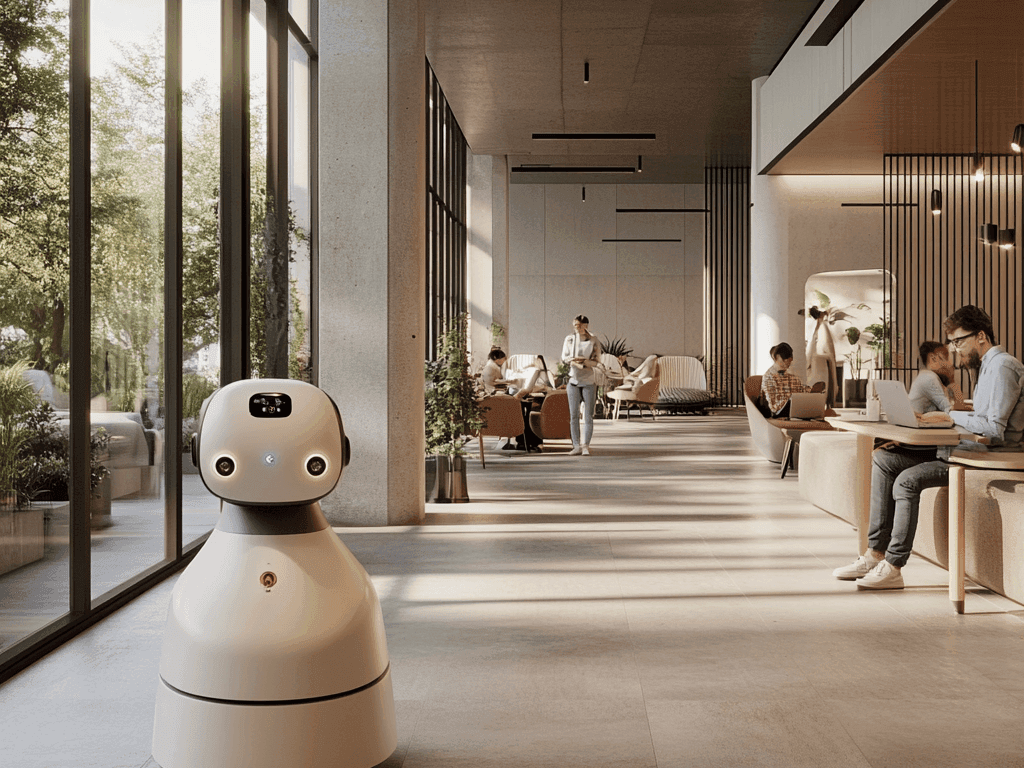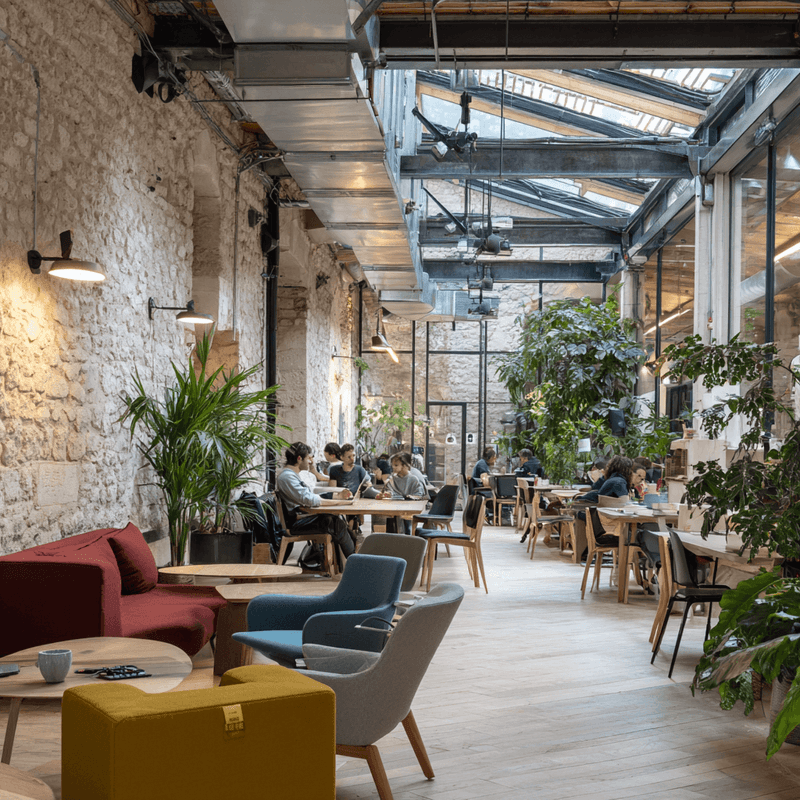
Born of the digital revolution and changes in the world of work, coworking spaces initially met a need for autonomy and flexibility. But in the age of artificial intelligence (AI), these flexible workspaces are no longer just shared offices. They are becoming technology hubs , where AI interferes in every nook and cranny: from premises management to user support and networking. A discreet but profound transformation, redefining the coworking experience. Focus on a few key innovations.
Flexible workspaces: places that learn from their users
In flexible workspaces, AI is at work right from the entrance. Thanks to sensors and analysis software, some spaces learn about their members' habits to anticipate their needs. We're not talking science fiction here, but a reality that's making workspaces more and more technologically advanced.
For example, the use of AI and IoT sensors in coworking space management is an emerging trend. These technologies can optimize space utilization, enhance the user experience and reduce operational costs. For example, smart sensors can collect data on space occupancy, temperature, brightness and air quality, while AI analyzes this data to automatically adjust environmental conditions.
Ø Coworking spaces in the age of AI
Intelligent assistants to free up time
In these ultra-connected environments, AI also plays the role of digital concierge. The challenge is to offer an enhanced employee experience.
AI takes care of repetitive tasks, such as booking rooms, managing access badges or sending reminders. The AI assistant, integrated into the spaces' mobile app, can even offer personalized event recommendations, based on the user's professional profile and interests.
Thanks to the information gathered by connected objects, such as motion sensors and apps when available, it is thus possible to pinpoint the meeting rooms most frequently occupied by users. This data can then be used to understand the reasons for their popularity: more pleasant natural lighting, ergonomic furniture or a more functional layout, for example. This then enables the overall use of flexible workspaces to be optimized, by adapting their layout and distribution according to actual employee preferences.
This type of assistance is all the more valuable when management teams and companies have to juggle very heterogeneous needs and teams: freelancers, telecommuting employees, consultants, but all are looking for a fluid yet differentiated experience.
AI + coworking = new leverage for professional support
Far from being limited to logistics, AI is also becoming a tool for professional support, particularly in innovation-oriented spaces. Artificial intelligence can help coworkers structure their business plans, analyze their markets or write their first pitches. Algorithms can even detect weak points in a presentation or CV, and suggest adjustments in plain language.
In Lyon, the H7 network has set up artificial intelligence meetings. These meetings are as much about acculturation and learning as they are about co-construction. The objective is clear: to move from a place of passage to a place of cross-fertilization.
Risks to watch out for: data, ethics and the digital divide
But this ambient intelligence is not without its questions. What kind of data is collected? How is it anonymized, stored and used? Confidentiality is a major issue, especially in shared spaces where several companies or professions cohabit. While some structures guarantee a strict RGPD charter, others, smaller or international, still offer too little transparency on data processing. For one question remains key: who owns the data collected?
Moreover, AI-driven user experience can also become intrusive, even standardized: should the algorithm decide on the ideal temperature or the day's playlist? Who owns the decisions in these "intelligent" environments? Without safeguards, AI can impoverish autonomy or generate a form of technological dependency.
Finally, the risk of exclusion is very real. Not all users are at ease with complex digital tools. The challenge for space operators is therefore to offer an inclusive experience, with simple interfaces, available human support and introductory courses for novices.
Despite these reservations, AI can play a positive role if it is put at the service of social ties, and not as a replacement. Many space managers claim that AI frees up time for what really counts: listening, welcoming, animating the community.
-
How can the flexible office reconcile real-estate costs and employee expectations?

05/01/2026 How can the flexible office reconcile real-estate costs and employee expectations?
For decades, the office has been seen as an immutable anchor: an assigned position, a fixed desk, a space designed to accommodate every employee from Monday to Friday, between 9am and 6pm. But this model, long considered indisputable, is now faltering under the impact of profound transformations in the world of work. Massive telecommuting, renewed employee expectations, the search for balance and meaning, and economic pressure on real estate are all forcing organizations to rethink their approach.
-
From cost reduction to cultural transformation: the real challenges of the flexible office

15/12/2025 From cost reduction to cultural transformation: the real challenges of the flexible office
Giving up personal office allocation was no longer seen as an upheaval, but rather as an obvious way of reducing costs, improving real estate efficiency and adapting spaces to contemporary uses. However, the companies that have taken the plunge recognize that the reality far exceeds this initial justification. A genuine cultural transformation was underway!
-
Does coworking restore the value of work?

08/12/2025 Does coworking restore the value of work?
Today, many organizations see Coworking as more than just a real estate service; they see it as a space capable of restoring value to work itself and re-engaging teams. But what exactly is this "value" that coworking claims to restore?